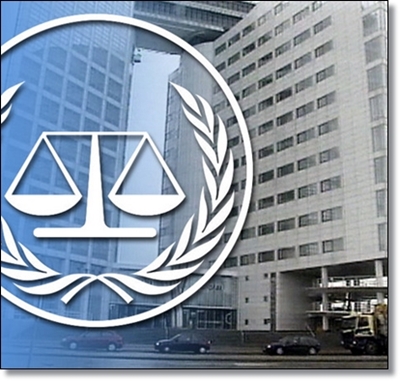The ICC On Trial

 |
European powers have gone out of their way to control Kenya, legitimize insurgency, discredit national institutions and make citizens to lose faith in the state. Loss of faith establishes grounds for socio-political disturbances and possible state failure. The distrust in the judiciary, for instance, was one of the excuses for the chaos that befell Kenya in 2007.
Events of 2007 have roots in the 1950s and Mwai Kibaki’s personality. The British mounted the Kapenguria show trial, tried to create new “African leaders,” promoted tribal hostility, and organized mass disenfranchisement of identified people. The same was repeated after 2003 when President Kibaki started making independent decisions on domestic and international policy that rubbed Euro-powers the wrong way. Kibaki seemingly ignored threats to political stability and failed to deal with looming crisis, even as the Euros mounted “regime change” efforts. When the effort, especially through the 2005 orange and banana constitutional referendum, failed, they encouraged civil insurgency and the discrediting of national institutions which culminated in the 2007 elections disaster. Kibaki, unable to handle the subsequent crisis, lost power through the nusu mkate deal.
The deal allowed the Euro-prompted ICC to influence the Kenyan political agenda. Prosecutor Moreno Occampo, an Argentinian, made his objective clear: to make Kenya an example, to indict high level personalities, and to get equal numbers from the PNU and ODM political divide.
The European powers have ignored Kenya’s pleas and appear eager to fund the ICC to nail targeted Kenyans seemingly to smoothen the way for favourite candidates to win elections. The ICC reportedly told Miguna Miguna that it wanted information that would help convict the accused only but it was not interested in “facts” that might lead to more serious perpetrators.
The political environment has made The Hague replicate Kapenguria. It is the other Kapenguria, complete with imperial sponsorship, held far away, having questionable witnesses, and attracting colonial and anti-colonial fervor. As in Kapenguria, there was recanting of testimony. Bensouda has insisted that she has strong cases and at the same time cried about shortage of evidence. Besides accusing Kenya of not giving her self-incriminating evidence, one of her assistants suggested violation of Kenya’s constitution by telling the Deputy President to delegate his constitutional responsibilities.
The search for truth has been sidelined in the pursuit for fixing individuals. In the process, the prosecutor has forgotten to verify the veracity of the selected witnesses and is obsessed with records of Uhuru’s wealth. The cry of justice for the victims has become inflicting injustice not only to original victims of violence but also on targeted victims of international political manipulation.
The international political overtones in the Kenyan cases have helped to stimulate Pan-Africanism and re-examination of the concept of justice. As the Euros threatened Kenyans with “consequences” if they vote wrongly, they aroused resentments. Fully knowing what the Euro-sentiments were, voters elected the unwanted. The African Union sided with Kenya in confronting what appeared like postmodern colonialistic victimization. And the falling apart of the supposed evidence reinforced the perception that the entire ICC undertaking was an orchestrated abuse of the word justice.
The ICC needs self-examination, admit it goofed, terminate the cases, and redeem its self-esteem.
By Prof. Macharia Munene
The author gmmunene@usiu.ac.ke is a lecturer at the United States International University.
